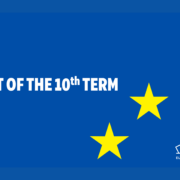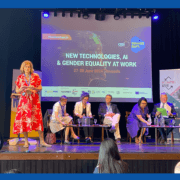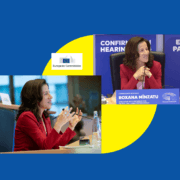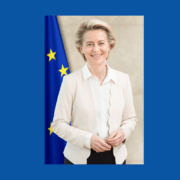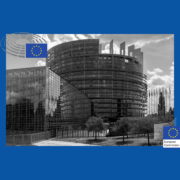Margrethe Vestager claims for managers’ leadership in the face of the challenges of the European Union
“As managers know very well, good things need effort,” said today Margrethe Vestager, the Executive Vice-President of the European Commission, to the European managerial representatives gathered at the headquarters of Lederne, the member organisation of CEC European Managers in Denmark.
She accepted CEC European Managers’ invitation to participate in the Sustainable Leadership in the Age of Artificial Intelligence Conference held in Copenhagen and gave a highly relevant speech on sustainability, AI, the single market, and the future of Europe through the unavoidable enlargement.
She also answered critical questions from participants (most of them members of the managerial organisations in their home countries), such as the impacts and the public support strategies for a fair transition, the importance of leadership, and the critical pitfalls faced by the European project.
As the former Minister for Economic and Interior Affairs of Denmark, 2011–2014 and European Commissioner for Competition, 2014–2019 and current Executive VP of the European Commission in charge of A Europe Fit for the Digital Age, Vestager is likely one of the most authorised voices in the EU to discuss companies’ challenges and the choices that employers, employees and labour market regulators must carry out to foster competitiveness. All that, through a remarkable compromise for social dialogue and the role of managerial staff.
“We are all talking about change, and change is necessary, but change without leadership is nothing,” she stated at the beginning of her intervention, after being welcomed by President Maxime Legrand, who took the floor to introduce the European project Beyond Unconscious Bias – Beyunbi, and to point out some of its findings. For instance, Legrand explained that it is quite common that in many companies the added value is only shared between the CEO and 3 or 4 people, to which Vestager responded ironically “let’s keep in mind that there’s a limit to how inspiring a CEO can be” and showcased the nordic leadership as a tool for success.
The idea of success and progress is also experiencing dramatic changes among Europeans. As the EU moves towards a society built upon post-materialistic values, there’s a chance for a more shared future. In the Vicepresident’s words, “I have the impression that in the future it’s very possible that the European Union society will measure success in terms of collective achievements, rather than individual success. For instance, cleaner air, more safety, or more inclusiveness.”
There’s a limit to how inspiring a CEO can be.
Margrethe Vestager
Regarding other international files, such as the Green Deal, the Vicepresident of the European Commission was crystal clear. “In 2023, the cost of climate change was 100 billion euros”, and this figure is unbearable for any economic system. The change and the new leadership Vestager is advocating for are intrinsically linked to the European project, because “You need to feel like you belong to your society to care about the problems and challenges of your society.” And when it comes to Europe, “the biggest trading block in the world”, we need to support a fair and sustainable transition for all.
That led to a more in-depth reflection on the values of the European Union and its model. “We need to protect our model and believe in it” and to do so, Vestager claimed for a harder attitude when getting into negotiations in a way to protect our single market, perhaps by not trading with those who don’t play by the rules.
At the end of her intervention, CEC European Managers was able to ask her a crucial question for leaders: What measures should be taken to prepare workers for the Artificial Intelligence transition in the EU job market?
Right after the Vice-President’s speech, Ander Nolting Magelund, Climate Chief Consultant and Liv Majken Keil, Chief Consultant at Lederne, presented ESG – a reporting game or a visionary mindset? How can we help the SME leaders dealing with the challenges?, a very useful and dynamic tool to monitor the sustainability processes and demonstrate the key learning from the process, while reinforcing the importance of partnership.
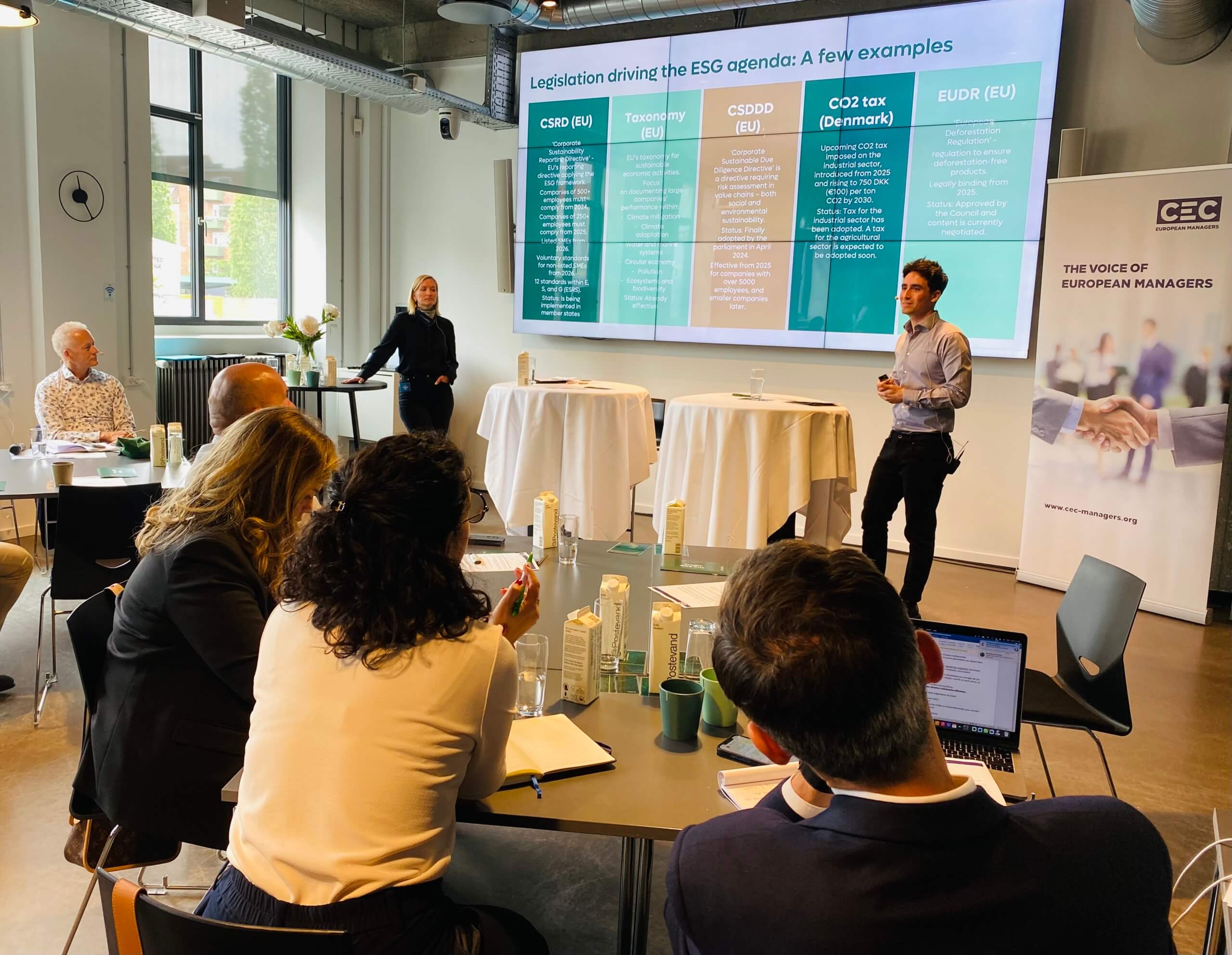
The conference ended with a very interesting panel discussion about the future of the EU. The debate was led by CEC European Managers’ President, Maxime Legrand, the president of the French organisation CFE-CGC, Franços Hommeril, and President Andreas Miller of the Swedish organisation Ledarna, with the facilitation of Anders Koch from the host organisation Lederne.
Among the main ideas, Legrand remarked that “We have created the #UseYourLeadership campaign because many citizens are disconnected from Europe, for instance in France, 26% of people claim the EU has no impact on their daily lives. We all know this is just not true”
Miller indicated that “Democracy is under pressure in the EU and in the whole world. Sustainability and security are also crucial threats. Also, the enlargement will not be easy for the current member states and the new countries.”
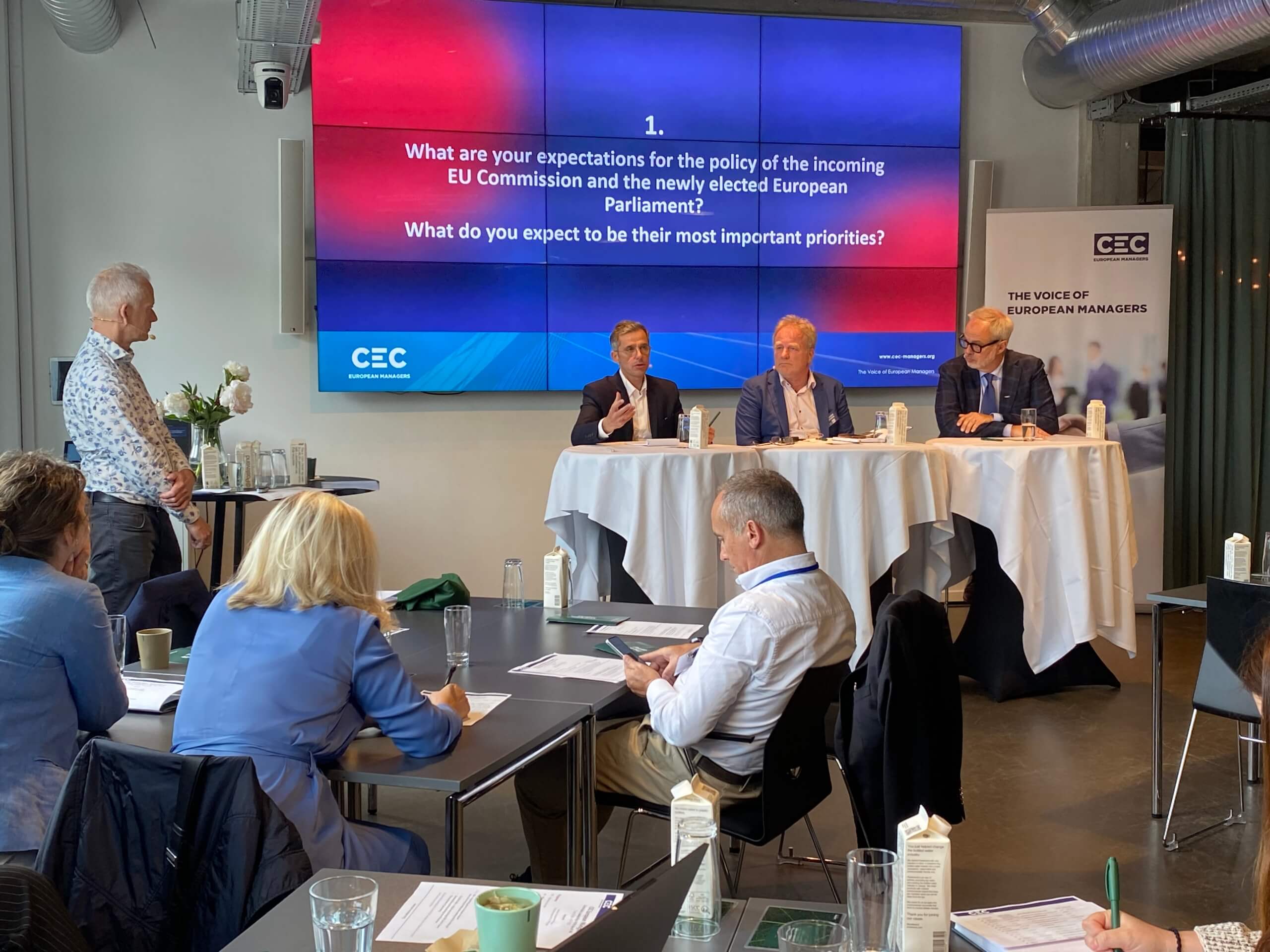
And Hommeril, for his part, put a vindictive accent, saying, “As managers, we are not scared of complexity. We need leaderships brave enough to confront the economic powers so that they include gender equality, sustainability and promote social rights.”
We need leaderships brave enough to confront the economic powers so that they include gender equality, sustainability and promote social rights.
François Hommeril
Maxime Legrand, newly re-elected president of the confederation closed the conference thanking all the participants.



